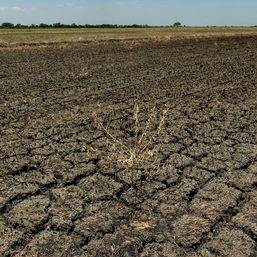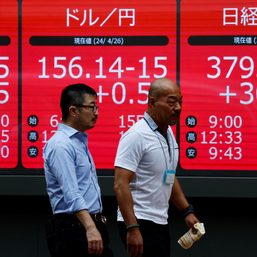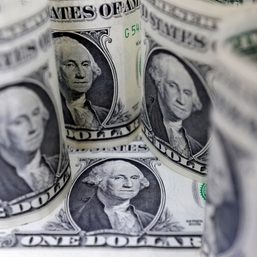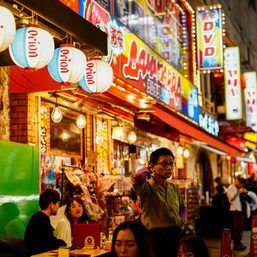SUMMARY
This is AI generated summarization, which may have errors. For context, always refer to the full article.
![[OPINION] Stop the inequality virus!](https://www.rappler.com/tachyon/2021/01/inequality-virus-january-27-2021.jpg)
It’s been nearly one year since the World Health Organization declared COVID-19 a pandemic, and the coronavirus has been wreaking havoc in societies across Asia, massively impacting health and economic systems in the region and across the world. For most countries, no end is yet in sight, although a few seem to have responded well. But overall, unemployment has surged. Labor market participation especially for low-income workers and marginalized groups has plunged. Last year, Oxfam warned that the pandemic will worsen inequality, and millions of people in Asia and the Pacific could be pushed deeper into poverty. We had hoped to be proven wrong. But this seems to be the case.
In Asia, 711 billionaires have seen their fortunes increase by $1.5 trillion dollars since March 2020, enough to give the 157 million people in the region that COVID-19 forced into poverty a cheque for $9,000 each.
COVID-19 has increased economic inequality and intensified the experience of inequality and injustice for women and girls, and other people who are marginalized and discriminated because of their race or their status in society: migrants, informal workers, refugees, those belonging to a lower caste. This is the first time this has happened since records began over a century ago.
Oxfam’s new report, The Inequality Virus, released on the opening day of the World Economic Forum in Davos, shows that the world’s 10 richest men have seen their combined wealth increase by half a trillion dollars since the pandemic began — more than enough to pay for a COVID-19 vaccine for everyone and ensure no one is pushed into poverty. The 1,000 richest people on the planet recouped their COVID-19 losses within just 9 months of the pandemic.
In contrast, it could take more than 10 years for the world’s poorest to recover from COVID-19’s economic impacts. Rising inequality means people living in poverty could take at least 14 times longer to return to pre-pandemic levels than it took for the fortunes of the top 1,000 mostly white, mostly male billionaires to bounce back.
The rigged economic system is enabling a super-rich elite to amass wealth in the middle of the worst recession since the Great Depression while billions of people, especially those on the front lines of the pandemic — care workers, shop assistants, health workers, market vendors — are struggling to pay bills and put food on the table. While the recession is over for the richest, hundreds of millions of people now unemployed are desperate to survive the worst job crisis in over 90 years.
Despite efforts over many years by different actors to bridge the gender gap, women are still the hardest hit by this pandemic. Globally, women are overrepresented in low-paid precarious jobs, the ones wiped out by the pandemic. Women also make up roughly 70% of the total global health and social care workforce — essential but often poorly paid jobs that put them at greater risk from COVID-19.
Coming back to Asia, we were once the leader in the fight against poverty. At the start of this century, we offered hope to millions around the world. But the path of Asian progress was slowed down by rising inequality in the last two decades. Even the hard wins of the last few decades may be wiped out by the devastating impacts of the pandemic if the right actions are not taken or delayed.
But there is some ray of hope as we witness some Asian countries taking bold policy measures — unthinkable before the crisis — to support their people. For example, Vietnam has increased its health spending and is considering inequality reduction a core part of its upcoming 10-year plan. South Korea has tackled the crisis head on, introducing universal emergency relief payments for 22 million households. Myanmar, one of the poorest countries in Asia, increased its social protection scheme to cover 21 million people, an increase of 8,684%.
Going forward, the fight against inequality must be central in COVID-19 economic recovery efforts. I propose 4 policy areas for a recovery path that’s fair, green, and just towards poor women and other marginalized people, a path that could once again demonstrate Asia’s leadership to the world:
- Feminist future: To reduce gender inequalities and the disproportionate burden of the pandemic on women, governments in Asia need to use the pandemic as an opportunity to proactively invest in essential care services, support women-led medium and small enterprises, and pass and implement laws to end violence against women and girls.
- Tax rich individuals and corporations: Mobilize domestic revenue through wealth taxes and excess profits taxes. Tax dividends to put money in the pockets of poor people and invest in essential services. Governments in Asia need to cooperate, not compete, for taxing rich individuals and companies to generate the much-needed revenue.
- Invest in universal health, social protection, and the care economy: Achieve universal health coverage. Governments need to ensure that COVID-19 vaccines are a public good — free of charge to the public, distributed fairly and based on need. Establish a fund for universal social protection and ensure that informal workers benefit from this. People who lose their jobs need to be given financial support.
- Protect wages and workers: Protect and reward jobs that matter with a living wage. Protect labor rights especially those of essential, frontline workers.
The pandemic is a tipping point. The way governments respond to it can bring us forward OR set us back. I call upon Asian governments to do their duty to their citizens. I call upon the people of Asia to come together in solidarity and united action against the inequality virus. – Rappler.com
Lan Mercado is Oxfam’s Director for Strategy and Feminist Futures. Concurrently, she is the Asia Regional Director. She is an activist and a development worker with over 30 years of experience working with civil society groups, environmental movements, and women’s rights organizations.
Add a comment
How does this make you feel?


![[Rappler’s Best] US does propaganda? Of course.](https://www.rappler.com/tachyon/2024/06/US-does-propaganda-Of-course-june-17-2024.jpg?resize=257%2C257&crop=236px%2C0px%2C720px%2C720px)




![[OPINION] A rebellion long overdue](https://www.rappler.com/tachyon/2024/06/mass-uprising-matrix-june-4-2024.jpg?resize=257%2C257&crop_strategy=attention)



There are no comments yet. Add your comment to start the conversation.